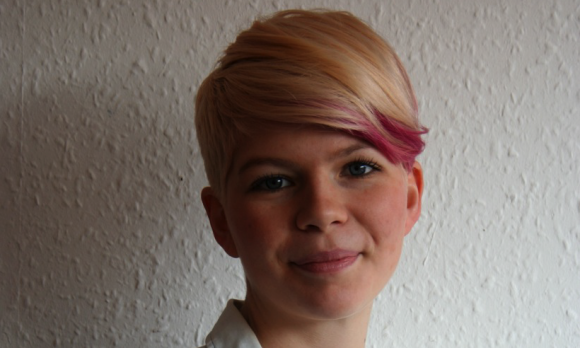AltGen
Heralding with joy the first funding of £40,000 given to her new initiative by Co-operatives UK, Rhiannon Colvin, 24, a recent graduate and social entrepreneur, shares her journey so far and explains why she decided to start a co-op social enterprise.
“Internet encourages collaboration but the co-op movement in the UK has not been quick enough looking at how they can use technology to further the movement. How can we create tools that allow people make decisions in democratic ways is the question I set off. There is only a co-op UK directory which has been listing organisations but I want to create a co-op ecosystem with an interactive map to enable organisations to trade with each other as well as be more inclusive of youngsters,” she says.
With the help of Agile Collective, a web development coop in Oxford, she will be designing an interactive map inspired by Cooperative Integral’s model in Spain which creates a bridge between different co-ops there.
AltGen -stands for Alternative Generation- supports 18-25 year olds to set up workers’ cooperatives as an empowering and collaborative solution to youth unemployment. In a pilot project due to start in this year, they will inspire, facilitate and support the formation of initial five co-ops across the UK in collaboration with ten universities. Coming from an activist background, she will also aim to match skills of unemployed 18-25 year olds with the paid roles available in co-op industry.
The five brand new co-ops will be given £2,000 each and become the founder coops of AltGen whose primary aim is to inspire young people to start thinking outside standard career routes to explore what would be more beneficial for them rather than fighting for unpaid work.
After her graduation from International Development and Politics department in Leeds University, she looked for jobs almost for a year. And her experiences during that time led her come up with the idea of AltGen. “Those experiences made me think it is crazy to fight for an unpaid work along with 150 other people that applied for the same position. That makes us powerless as a generation. We have no control over the situation we are in. And I think the economy is so unfair, undemocratic and unsustainable. As youngsters, we should create work that has social impact,” she says.
It’s true that co-ops aren’t particularly new, emerging in the UK with the Rochdale Pioneers in 1844. However, as people are increasingly struggling to meet their basic needs, co-ops seem to be having a resurgence and to offer solutions to many of the problems today’s young generation faces.
Co-operatives are a specific form of social enterprise where workers own the business, profit is distributed fairly and all members make decisions democratically. In an economy where wealth is unequally distributed and youth lack decision-making power and agency, this gives anyone control over a key area of their life. In contrast to the idea of the individual entrepreneur it offers a collaborative model that shares risk, builds confidence and allows a larger number of young people to get involved with social enterprise, as not all of them have the character to make it on Dragons’ Den.
Amid pay furore in Britain’s biggest co-op as the news were released on their former CEO earning 6.6m, Colvin is determined to keep the co-op spirit of equality and democracy. “How coop supermarket is any different to any other supermarket?” she asks.
“In many ways, coop banks and supermarkets don’t represent what coops are all about. They look commercial. Their structure became hierarchal and their democracy diluted. I don’t see how workers are being treated any differently there.
“Those initial five coops will be the founder coops of the network. We didn’t work out the financial structure of it whether they pay membership or leave certain percentage of the profit to AltGen. I may sound unprepared but that’s not the case. The coops are about democracy so I want them to decide. As the founder, I won’t dictate how the network grows and works.
“Definitely, I will encourage start-ups to be socially focused. There are a large number of graduates looking for jobs in the creative sector. Traditionally freelance industries come together and support each other. Ceramics and actors cooperate for example. Any business can be a coop business. Actors have troubles finding agents to arrange work for them. They act as agents for each other and contribute some of their earning as sick pay, holiday pay to their coop,” she adds.
Altgen will be a co-op itself in the next few weeks after she employs the third person as this is the minimum number of members for coops in the UK. There is not any set legal structure for coops applied but values and their model can tell it is a coop.















Write Your Comment